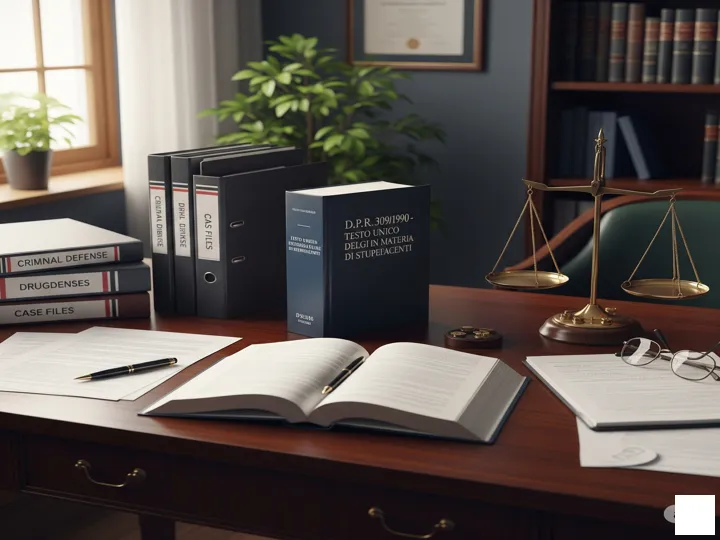The Court of Appeals in Trieste, through an order issued on March 17, 2017, raised issues of constitutional legitimacy concerning penalties for cocaine trafficking. These issues pertain to Article 73, paragraph 1, of the Presidential Decree (DPR) 309/90, which establishes sanctions for drug-related offenses. The Court of Appeals highlighted that this provision imposes a minimum penalty of eight years of imprisonment, instead of the previous minimum of six years, which was introduced by Article 4 bis of Legislative Decree 272/2005. The latter provision had, in turn, been declared unconstitutional by Constitutional Court Judgment No. 32 of 2014.
The Principle of Legislative Reserve and the Questionable Penalty Modification
Initially, the Court of Appeals’ order raises the issue of a violation of the principle of legislative reserve in criminal matters, as enshrined in Article 25, paragraph II, of the Italian Constitution. This principle states that only the legislature has the authority to increase criminal sanctions. The modification that raised the minimum penalty from six to eight years was introduced following Constitutional Court Judgment No. 32 of 2014, and the Court of Appeals considers this modification to be in conflict with Article 25 of the Constitution.
However, the Constitutional Court rejected this issue, arguing that decisions made by the Constitutional Court itself cannot be subject to challenge. Therefore, this issue represents an improper attempt to contest Constitutional Court Judgment No. 32 of 2014.
Irregularities in Determining Penalties
The Court of Appeals also raised the issue of the unreasonableness of the penalties established by Article 73, paragraph 1, of DPR 309/90 for offenses related to “heavy drugs.” This unreasonableness becomes apparent when comparing the sanctioning treatment for these offenses with that established for offenses related to “light drugs” and for offenses of minor significance.
Disparity Between Penalties for Heavy Drugs, Light Drugs, and Minor Offenses
The referring judge emphasized that the distinction between the different categories of drug-related offenses (heavy and light drugs) and minor offenses is not clear. However, the differences in penalties are significant. For example, the minimum penalty for heavy drug offenses is eight years of imprisonment, while for light drug offenses, it is two to six years. For minor offenses, the penalty ranges from six months to four years. This disparity has been considered unreasonable and in violation of Article 3 of the Italian Constitution, which guarantees equal treatment.
Proportionality and the Rehabilitative Purpose of Punishment
The Court of Appeals also raised the issue of a violation of the principles of proportionality and the principle of guilt and the necessary rehabilitative purpose of punishment, as enshrined in Articles 3 and 27 of the Constitution. Punishment must be proportionate to the gravity of the offense and aim at the rehabilitation of the convicted.
The Constitutional Court deemed these issues admissible and well-founded, as an unjustly severe penalty violates both the principle of proportionality of punishment and the principle of the rehabilitative purpose.
Evolution of Penalties for Drug Offenses
The Constitutional Court stressed that legislative and jurisprudential evolution has created a significant difference in the sanctioning treatment of heavy drug offenses, light drug offenses, and minor offenses. This disparity emerged due to legislative changes that eliminated the distinction between heavy and light drugs, followed by the introduction of regulations that reduced penalties for minor offenses.
The Appropriateness of a Six-Year Penalty
The Constitutional Court argued that the six-year penalty had repeatedly been indicated by the legislature as appropriate for offenses situated in a “gray area” between ordinary and minor offenses. Therefore, it declared the unconstitutionality of Article 73, paragraph 1, of DPR 309/90 insofar as it imposed a minimum penalty of eight years instead of six.
In summary, the Constitutional Court found the disparity in penalties for drug-related offenses to be unreasonable and contrary to constitutional principles of equality, proportionality, and the rehabilitative purpose of punishment. Consequently, the six-year imprisonment penalty was reinstated as suitable for these offenses.







